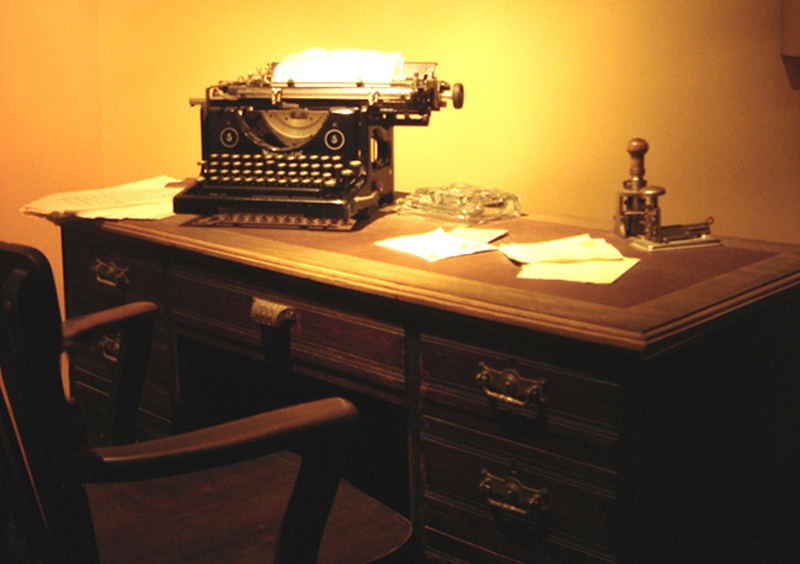 There is a part in this Otherppl With Brad Listi podcast interview with Stewart O’Nan where O’Nan talks about waking up early and getting straight to one’s writing desk as quickly as possible without other things getting in the way. O’Nan says:
There is a part in this Otherppl With Brad Listi podcast interview with Stewart O’Nan where O’Nan talks about waking up early and getting straight to one’s writing desk as quickly as possible without other things getting in the way. O’Nan says:
It’s always about getting back to the desk because that’s where the good stuff’s gonna happen.
This is why I get up early when writing something new: getting to the desk before anything else can get to me is vital on my writing days.
I recently wrote about how the time one writes doesn’t matter. If you can produce at night — by all means, be a night owl. Some of the most prolific writers I know write at night. But I also know many people who are exhausted by day’s end. For those writers, O’Nan’s advice is good.
First Thing
Starting your day off writing ensures writing will be done.
When I’m working on something new, I’m usually up between 5:00 a.m. and 6:00 a.m. (Even on weekends.)
Most mornings when writing new stuff, my routine looks like this:
- The night before: decide what I will write the following morning.
- The next morning: wake up and lie in bed a bit, thinking about what I’ll write.
- Get up.
- A trip to the bathroom.
- Pass through the office and wake up my computer.
- A trip to the kitchen where I drink a glass of water in the dark.
- Back to the office, where I sit down and write.
There’s no checking email or social media. There’s no thinking about bills or work or other things. It’s all about staying in a hazy state of mind and sitting down to write. (Some mornings, I’m done writing before it feels like much of an effort.)
But the best thing about this as a writer with a day job and writing early: no matter what happens the rest of the day, I’ve already written.
If I’m exhausted and don’t want to do anything after work, I don’t have to. If something comes up, it’s not getting in the way of my writing. If my work day is bad, all I have to do is remind myself that I got up and wrote — and that always makes even the worst days at work seem a bit better.
The Last Page
In the Otherppl interview, O’Nan talks about writing back when he had a day job at Northrop Grumman. O’Nan carried in his pocket the last page of what he was writing. It was a reminder that:
This is the most important thing to me. Not my job…
Throughout the day, O’Nan went over the page, fixing lines. He wrote new lines. He had a blank back page to rough things out or write something more on breaks throughout the day.
That last page ensured writing stayed on his mind at all times. O’Nan carried the page because he:
…didn’t want to lose that connection to the work.
Don’t Lose the Connection
Losing the connection is why I think many people get what they call writer’s block. They are interrupted throughout the day by family, work, and thinking about so many other things. Instead of giving their minds hours each day to think about their stories, they jump online whenever they have a spare moment or they think about things weeks down the line.
Not losing that connection is important to keep moving.
Even at work, I think about writing. I jot down ideas as they come. My coworkers are cool and ask how writing’s going. On lunch, if I’m not writing, I’m talking with my work friends about the things we love doing. Even though I’m the only writer, being around people who love the things they do is contagious and keeps writing on my mind.
Outside of work, I blog. I listen to podcasts about writing. I talk to and email friends about writing. I go for walks in the evening and think about what I’m working on. I do everything I can to keep the thing I love doing buzzing in my mind. When I’m writing something new, I keep that in my head.
In the interview, O’Nan says:
Gotta keep it moving. Gotta keep connected to it.
The best ways I’ve found to do that is to get to the desk as quickly as I can without other things getting in the way and not breaking the connection to the work even when I’m done writing for the day.
(Because I’m never done writing for the day…)

Leave a Reply